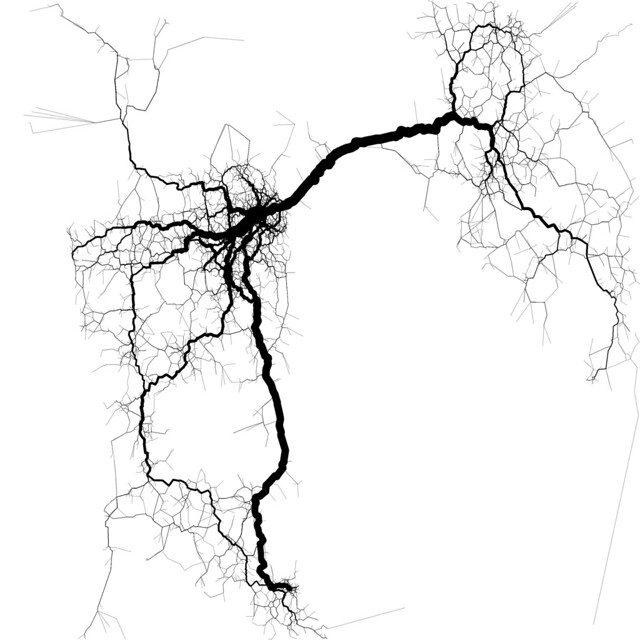UPDATE: Bay Area Bike Share has confirmed that you can, indeed, dock bikes between any participating city. It's unclear why Peter Colijn was unable to dock his bike. UPDATED UPDATE: Well, the BABS website has been updated saying that San Francisco and the rest of the system are separate, in that you can't bike from SF to other parts of the system, nor vice versa. But if you wanted to, say, bike from San Jose to Mountain View, you could dock your bike.
It took less than a week for an intrepid bicyclist to decide it was time to ride a Bay Area Bike Share (BABS) bike from San Francisco to Mountain View. Given our region’s strong corps of Bicyclists, it was only a matter of time, really.
But when the bicyclist, Peter Colijn, got to Mountain View, he couldn’t dock his bike. It seems BABS has set up not just different clusters of stations, but different systems altogether, where bikes from different clusters won’t dock at another cluster’s stations. This does not bode well for BABS.
As BABS expands, the clusters will get close enough that users could easily ride from one to the other. By splitting what purports to be a unified system into chunks, riders won’t be able to do what it clearly seems like they should be able to do: ride across city lines. It will make rebalancing more difficult in the future, too, as the bikes won’t be interchangeable with one another.
There is a simpler reason why this is a bad idea: people will do dumb and unusual things with BABS, and splitting the system up will exacerbate the consequences.
As a long-time observer of Washington, DC’s Capital Bikeshare (CaBi) program, which uses the same technology as BABS, I can say that I’ve seen just about everything. People take out their bikes for the day, lock them to bike racks, take them on the Metro, bring them into the office, and all sorts of other things you definitely shouldn’t do with a bike share bike. (CaBi has assured me and others in DC that they are very willing to cut overage fees, especially for bikes out more than 24 hours, when people didn’t understand the system.)
The same thing will happen in the San Francisco Bay Area. People will take the bikes on Caltrain, do long-distance group rides, and other things that will cost them a great deal in overage charges, often unwittingly. If users can’t dock their bikes in different cities, they’ll get double pain. Not only will they get hit with overage fees, but they’ll be stranded with the wrong bike in the wrong area.
I suspect BABS separated the systems to make rebalancing easier. There’s no way for a cluster’s bikes to migrate away from it, so each city keeps its “fair share” of bikes. But this doesn’t account for users’ creativity or lack of knowledge about the system.
BABS should give people allowance to do things outside how they want users to ideally use their system. Let the hardcore cyclists do their marathon runs and brag about them on Strava – it’s free publicity! Let the inexperienced and the tourist take the bikes on Caltrain or ride them from San Jose to Mountain View. It would be easier to pick up bikes that people ride to the “wrong” place on BABS’ own time than to force innocent users to travel all the way back to wherever they came from. It would certainly beat the bad the publicity of an angry customer who, quite understandably, thought that all BABS stations were the same.
I have an email out to BAAQMD, BABS’ manager, to find out which clusters are interoperable and which aren’t. A comment on Cyclicious says Palo Alto and Mountain View bikes are interoperable, but I don't know anything beyond that. See update above.
